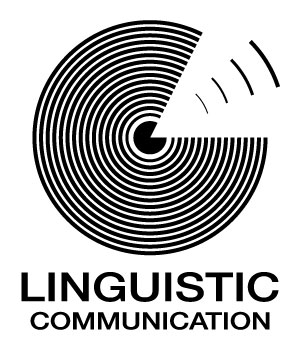COURSE DESCRIPTION
In order to grow and remain financially viable, it is essential that organisations assess their structures, functions and personnel periodically to achieve their goals under optimal conditions. This systematic evaluation process of an organisation’s operations is known as Organisational analysis, and is critical in paving the way for organisational change and transformation necessitated by globalisation, technological advancement, business, economic or other factors.
Building on foundations of organisational theory and organisational behaviour, this course will allow students to explore models that facilitate organisational analysis, and apply these benchmark practices to understand performance parameters, determine problem areas, identify opportunities for change and finally, develop a plan of action for transformation in any type of organisation.
Key areas of the course will include determining organisational goals and effectiveness, group behaviour, incentive theories, institutional theories, resource dependency theories and population ecology theory. Finally, communication oriented learning will include networking, negotiation, conflict resolution, along with leadership and decision-making to train students in navigating complex management problems.
Learning Objectives:
- Develop an understanding of different models of organisational analysis, theories, principles and terminology and apply these to real case studies
- Identify and analyse goals and processes of an organisation for starting transformation
- Relate and apply concepts, models and theories to empirical evidence and case
- Develop necessary skills to critically assess organisational action and the behavior of individuals within organisations
- Acquire communication skills to minimise resilience to change
- Be able to provide succinct solutions for organisational change
Prerequisites: minimum TOEIC score of 650, SPE 090 Introduction to Management
DESCRIPTION DU COURS
Afin de se développer et de rester financièrement viable, il est essentiel que les organisations évaluent périodiquement leurs structures, leurs fonctions et leur personnel pour atteindre leurs objectifs dans des conditions optimales. Ce processus d’évaluation systématique des opérations d’une organisation est dénommé analyse organisationnelle et est essentiel pour ouvrir la voie aux changements et transformations organisationnels rendus nécessaires par la mondialisation, les progrès technologiques, les affaires, l’économie ou d’autres facteurs.
S’appuyant sur les fondements de la théorie organisationnelle et du Comportement organisationnel, ce cours permettra aux étudiants d’explorer les modèles qui facilitent l’analyse organisationnelle, et d’appliquer ces pratiques de référence pour comprendre les paramètres de performance, déterminer les domaines problématiques, identifier les opportunités de changement et enfin, développer un plan d’action pour la transformation de tout type d’organisation.
Les domaines clés du cours comprendront la détermination des objectifs et de l’efficacité organisationnels, le comportement de groupe, les théories d’incitation, les théories institutionnelles, les théories de dépendance des ressources et la théorie de l’écologie des populations. Enfin, l’apprentissage centré sur la communication comprendra la mise en réseau, la négociation, la résolution des conflits, ainsi que le leadership et la prise de décision, afin de former les étudiants à la résolution de problèmes de gestion complexes.
Objectifs:
- Développer une compréhension des différents modèles d’analyse organisationnelle, des théories, des principes et de la terminologie et les appliquer à des études de cas réels
- Identifier et analyser les objectifs et les processus d’une organisation en vue de lancer une transformation
- Relier et appliquer les concepts, modèles et théories à des preuves empiriques et à des cas concrets
- Développer les compétences nécessaires pour évaluer de manière critique l’action de l’organisation et le comportement des individus au sein de celle-ci
- Acquérir des compétences en communication pour minimiser la résilience au changement
- Être capable de trouver des solutions succinctes pour le changement organisationnel
Pré-requis: Score de 650 au TOEIC, SPE 090 Introduction to Management
Links to resources for presentations or summaries:
ORGANISATIONAL ANALYSIS
https://corporatefinanceinstitute.com/resources/knowledge/strategy/organizational-analysis/
https://www.referenceforbusiness.com/management/Ob-Or/Organizational-Analysis-and-Planning.html
https://www.emerald.com/insight/content/doi/10.1108/14637150310484535/full/html?skipTracking=true
Models of organisational analysis: https://www.businessstudynotes.com/hrm/training-development/organizational-analysis-methods/
ANALYSIS TEMPLATES
https://www.template.net/business/analysis-templates/organizational-analysis/
Organisational goals: https://www.yourarticlelibrary.com/organization/organizational-goals-definition-importance-and-goal-formulation/63767
https://www.partnersinleadership.com/insights-publications/how-to-set-organizational-goals/
https://www.iedunote.com/organizational-goals
ORGANISATIONAL EFFECTIVENESS
https://www.digitalhrtech.com/organizational-effectiveness/
https://www.marketing91.com/organizational-effectiveness/
https://leadershipcircle.com/en/the-six-systems-of-organizational-effectiveness/
INCENTIVE THEORY
https://www.indeed.com/career-advice/career-development/incentive-theory-of-motivation
https://www.verywellmind.com/the-incentive-theory-of-motivation-2795382
https://www.psychologynoteshq.com/incentive-theory-of-motivation/
https://www.psychestudy.com/general/motivation-emotion/incentive-theory-motivation
Group Behaviour: https://itsmyschoollibrary.com/2020/06/22/definition-types-characteristics-and-benefits-of-group-behaviour-js2-social-studies-lesson-note/
Population Ecology: https://faculty.babson.edu/krollag/org_site/org_theory/scott_articles/han_free_orgec.html
https://borakurum.medium.com/population-ecology-or-institutional-theory-why-why-not-ae7ea874f5ef
Resource dependence theory:
https://www.youtube.com/watch?v=hSgdCNHuVEo
Management and accounting web:
https://maaw.info/ArticleSummaries/ArtSumSimons95.htm
Books:
Clark, Peter B., and James Q. Wilson. “Incentive Systems: a Theory of Organizations.” Administrative Science Quarterly 6, no. 2 (September 1961): 129-166.
Wilson, James Q. “Notes Toward a Theory of Innovation.” In Organizational Design and Research: Approaches to Organizational Design. Edited by James D. Thompson. Pittsburg, PA: Pittsburg University Press, 1971. ISBN: 9780822952220.
March, James G., and Herbert A. Simon. Organizations. 2nd ed. Cambridge, MA: Blackwell Business, 1993. ISBN: 9780631186311.
Cyert, Richard Michael, and James G. March. A Behavioral Theory of the Firm. Cambridge, MA: Blackwell Business, 1992. ISBN: 9780631174516.
Course Features
- Lectures 0
- Quizzes 0
- Duration 21 hours
- Skill level All levels
- Language English, French
- Students 0
- Assessments Yes

